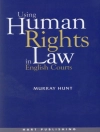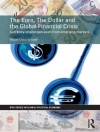This book explores the effects and consequences of major global power and major regional power status attribution on the foreign policies of states striving for such status and the consequences of status differentiation for the international system and the post-Cold War international order.
สารบัญ
PART I: Major Global Powers and Their Status Major Power Status Attribution: Conceptual and Methodological Issues; T.J.Volgy , R.Corbetta , K.Grant , & R.Baird Global Leader, Global Power, Status Consistent Power: The United States; W.R.Thompson From Underachiever to Overachiever, and Where to Now: Russia as a Major Power; M.R.Freire From Regional Player to Overachieving Major Power: China; Y.Deng The Ups and Downs of Major Power Status: France; B.Badie PART II: Regional Powers, Status, and Aspirations for the Global Stage Regional Powers and Their Status: Further Conceptual and Methodological Issues; T.J.Volgy , R.Corbetta , K.Grant , & R.Baird South American Regional Order: the Growth of Brazil as a Regional Power; M.Herz Regional Power Development in a Space Thick with Competing Powers: India; R.Bashrur Regional Power Development in High Conflict Geopolitical Space: Iran and its Competitors Developing Regional Power Capacity: South Africa PART III: Conclusions: The Struggle for World Order and the Future of International Politics; T.J.Volgy, R.Corbetta, K.Grant , & R.Baird
เกี่ยวกับผู้แต่ง
THOMAS J. VOLGY Professor of Political Science at University of Arizona, USA.
RENATO CORBETTA Assistant Professor at University of Alabama, USA.
KEITH A. GRANT Research Assistant at University of Arizona, USA.
RYAN G. BAIRD
is Ph D candidate at University of Arizona, USA












